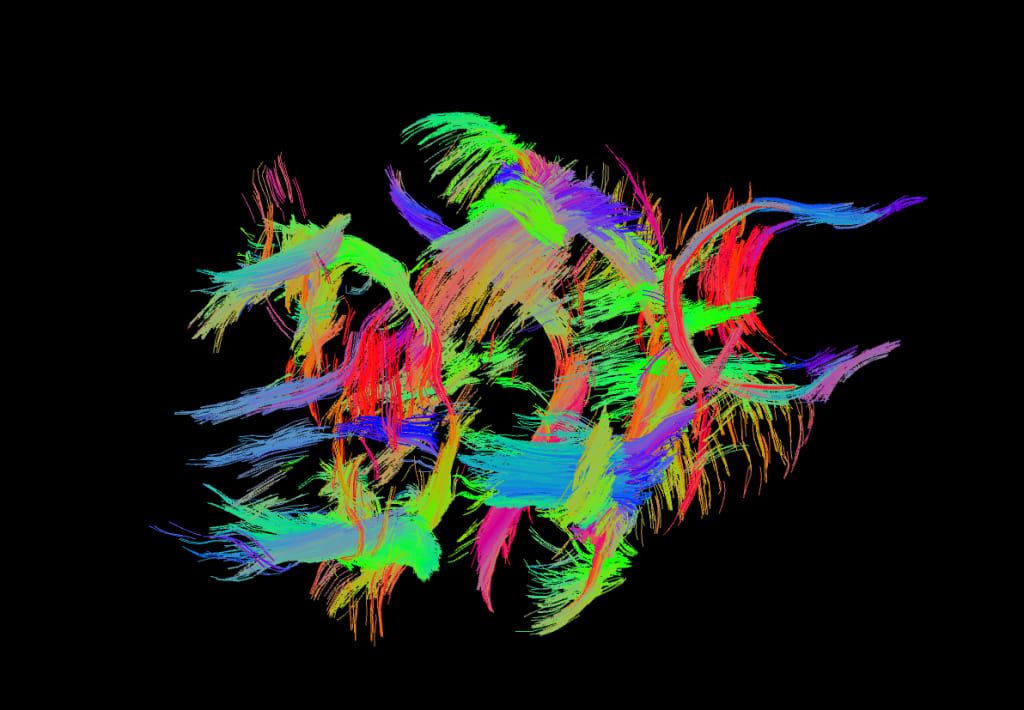Take My Brain--Please!
How My Injured Brain Contributes to Research

What goes on in my brain?
I’m not a neuropsychologist or a researcher, but I am in a unique position of having sustained at least four traumatic brain injuries, plus meningitis, which is an acquired brain injury. I will live with the consequences of those injuries for the rest of my life. Most of the time, it’s ‘no biggie’.
With some adjustments and self-awareness, I live my life to the extreme. The injuries forced me to become more creative and pay more attention to the world around me. I am still a daredevil. And every day is a gift, whether I appreciate it or not.
But as anyone who has had a brain injury can tell you, it takes a lot of half-diagnoses, false leads and confusing symptoms to get to the bottom of what’s really going on. When I sustained my first concussion in 1985, and then when the worst one hit in 2012, there was little research accessible to those suffering or their families. Of course, I could read about Sidney Crosby and how professional football players were dropping like flies. However, there was little that offered help to an ordinary woman like me.
We learned about the cumulative effect of brain injury and chronic traumatic encephalopathy (CTE) from sports news and the NFL. Books and movies have explained the horrors of CTE and progressive sports-related dementia. However, here’s the catch: CTE can only be diagnosed during autopsies. And CTE is not what the half-million individuals in Ontario with post-concussion syndrome live with. So we don’t need to die to be valuable in the research world.
Times have changed. In the past several years there has been an explosion of information about traumatic head injury, and thankfully awareness is growing. In Canada, one of the most valuable resources for the injured and their caregivers is Brain Injury Canada (braininjurycanada.ca). Through its provincial affiliate, the Ontario Brain Injury Association—obia.ca—I have met allies, taken brain injury rehabilitation courses at Brock, and attended conferences where the injured and caregivers can come together and learn as a community.
Now, there are studies that do refer to women like me, and there’s research that involves viewing brain injury and aging. It’s an exciting time.
That’s why I volunteer to participate in research studies—and I’m currently taking part in two. I’m more than happy to offer up my brain for research, because…well, because I can. I’m healthy and able enough to do so, and I really hope that someday I can contribute to a body of research that will help others.
Each year, I attend the Toronto Memory Program, where I’m monitored for memory and mood changes. I’m given tests like the Montreal Cognitive Assessment, which compares my scores to previous years. I’m often the youngest in the room (other than the doctors and researchers). I’m grateful that I was referred to TMP in my 50s, because they get to study me for longer than they do many patients. And it helps me to observe any changes through a standard testing procedure.
Today, a researcher and I were actually giggling with glee over the study she is working on. It’s the first of its kind, looking at neuroinflammatory brain markers and the roles of certain proteins. It’s groundbreaking, because it may be able to offer up details that studies on classic inflammatory response haven’t been able to. I'm keen to participate. Keep in mind we’re talking about the brain and its complex regulatory functions: from the brainstem to the cortex, our head jelly controls breathing and cardio, arousal, sleep, memory, creativity, and last, but not least, thinking.
Studies are also researching the potential link between multiple brain traumas and dementia, Parkinson’s, and Alzheimer’s. Yes, some studies do report that there are links. Others minimize the correlation. There are no definite answers. Am I concerned? Yeah, because Alzheimer’s and dementia have already taken several of my relatives, and I kinda fit the profile.
But am I buoyed by this research? Short answer: absolutely.
Because the more we learn, the more prepared we can be—and the more likely it is that mitigating therapies can be developed and put into practice. It really is fascinating.
So do I mind a little bit of time and answering questions and screening and radiation and holding still and offering up my brain to science? At the most, it’s a small inconvenience and discomfort. But I hope and believe that someday…someday my brain will have offered up a clue that will help a brain-injured kid live a better life. That I’m a piece in a puzzle that might mitigate the terror of dementia. And that my knocked-down noggin is able to offer the owner of another knocked-down noggin a true sense of hope and purpose.
About the Creator
Catherine Kenwell
I live with a broken brain and PTSD--but that doesn't stop me! I'm an author, artist, and qualified mediator who loves life's detours.
I co-authored NOT CANCELLED: Canadian Kindness in the Face of COVID-19. I also publish horror stories.






Comments
There are no comments for this story
Be the first to respond and start the conversation.